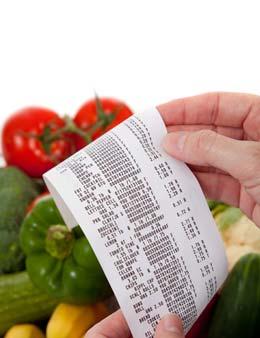The transition back to the PST

By: Ann Harper (CA)
Special to The Post
On April 1, 2013, we will officially move back to the PST-GST tax system in British Columbia.
Unfortunately, making the move back to the PST-GST tax system won’t be a snap for small businesses and a bit of paperwork will be required.
To help make the transition a little easier for small businesses across B.C., here are some things that they need to know, especially for those which were formed after March 2010 and have never dealt with the PST-GST tax system before.
Are there any improvements from the “old” PST?
There are other changes being made to improve the PST from its earlier days, including:
- new online access for business, including registration, account updates and online payments
- due dates for remittances and returns for monthly filers will be moved to the last day of the month to match GST remittances
- 8% Hotel Room Tax will be incorporated into the PST instead of requiring separate registration, remittances and returns
- businesses will be able to register with their federal business number
- retailers will be allowed to refund tax to customers in a broader range of circumstances
- businesses that collect and remit tax will again receive commission of up to $198 per reporting period
When does PST-GST system take effect?
April 1, 2013. However, you could register for a new PST number as of January 2.
Can I use my old PST number?
No. You will need to register for a new one.
Will I still have to file HST?
No. You will be filing GST at 5% using the same number and the same method as you do the HST
What do I need to do before April 1, 2013?
You need to register to for a PST number that will be 11 characters long
E-Services for businesses with a business number: www2.gov.bc.ca.
You can also register in person at any Service BC Centre.
Mail or fax 1-250-356-2195
What do I charge PST on?
The re-implemented PST, like the previous PST, will be a retail sales tax that is payable when a taxable good or service is acquired for personal use or business use, unless a specific exemption applies. PST generally applies to:
- the purchase or lease of new or used goods
- goods brought into B.C. for use in B.C.
- the purchase of most services to goods (for example, vehicle maintenance, furniture assembly, computer repair)
- the purchase of telecommunication services including Internet access, non-basic cable, non-residential telephone services, cell phone use, satellite services and fax services
- the purchase of legal services.
What is exempt from PST?
The PST will apply to the same goods and services that were subject to PST prior to the implementation of the HST. All permanent PST exemptions will be re-implemented with the new PST, including:
- all food for human consumption (e.g. basic groceries and prepared food such as restaurant meals)
- most services (e.g. personal services such as haircuts, dry cleaning, funeral services)
- admissions and memberships
- professional services, other than legal services (e.g. accounting)
- bicycles
- newspapers and magazines
- all permanent PST exemptions for business.
How will I remit the PST I collect?
You will be able to remit your taxes:
- online through the E-services website (letters sent to businesses in December 2012 will have additional information on the E-service website)
- at your bank (in person or online)
- by mail
Ann Harper is a Chartered Accountant (CA), Sage 50 Accounting–Canadian Edition Certified Consultant and owner of Mission City Business Center, a shared co-working space. As a CA, Ann has worked with the small business division of Deloitte and Touche and currently works with and provides accounting and advisory services to startups and micro-, small and midsized businesses.
Free retirement and estate planning seminars
The Richmond Public Library is hosting a free seminar on Retirement and Estate Planning.
Guest speaker and chartered accountant, Diana Mau, will offer free, practical seminars on financial matters concerning retirement, including benefits, taxes, investment and estate planning.
“Ms. Mau will examine sources of governmental pensions, how they’re calculated and how to maximize benefits; income tax deductions and credits; and how to take advantage of investment products to maximize retirement income, minimize income taxes and provide security,” said librarian, Wendy Jang.
“The seminar will also look at ways to transfer assets to the next generation in a tax effective manner. These seminars are a must for those who’ve just retired and those who are planning to retire soon,” added Jang.
The sessions will take place from 7-9PM at the Brighouse (Main) Branch in the 2nd floor learning place, located at 7700 Minoru Gate, Richmond.
To register, visit any branch of Richmond public Library, call 604-231-6413 or register online at www.yourlibrary.ca/whatson.cfm.
Sessions take place on the following dates:
#131 March 6 – Cantonese
#132 March 8 – Mandarin
#133 March 13 – English
PST seminar in Richmond
Richmond Public library is partnering with chartered accountant Diana Mau to offer free seminars in English, Cantonese and Mandarin on how to transition from HST to GST+PST.
On April 1st, B.C. becomes the first province to abandon the HST and revert back to the old GST + PST system.
"Participants will learn how it will affect businesses and consumers, especially those contemplating buying real estate,” said librarian Wendy Jang. The sessions will be held from 7-9PM at the Brighouse (Main) Branch in the 2nd floor learning place, located at 7700 Minoru Gate, Richmond.
To register, visit any branch of Richmond public Library, call 604-231-6413 or register online at www.yourlibrary.ca/whatson.cfm.
Sessions take place on the following dates:
#128 February 20 – Cantonese
#129 February 27 – Mandarin
#130 March 1 – English
Leave a comment






